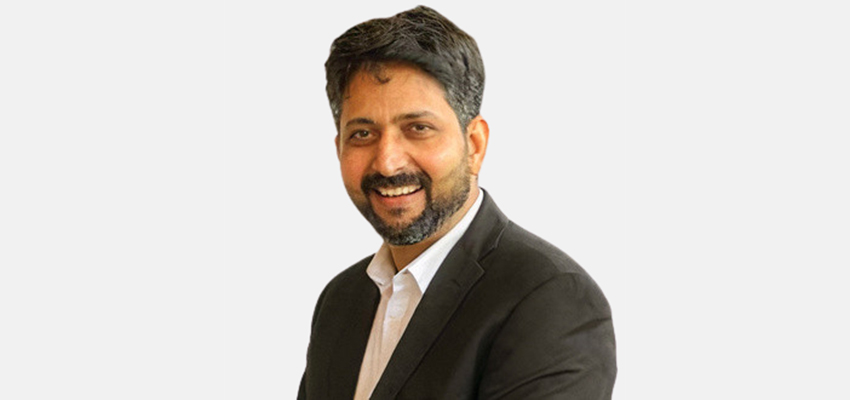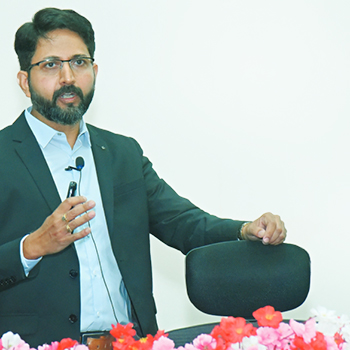Investing a little time in self-training boosts productivity

Mukund Shastri, group VP and chief data science officer, Comviva, believes the need of the hour isn’t just tech savvy users but tech savvy creators. Given the massive leap taken by data science in recent years, investing the time and effort to keep up with the latest tools will yield rich dividends. He talks to Corporate Citizen
Corporate Citizen: The big question first. Tell us about the challenges and opportunities before data in the days to come.
Mukund Shastri: Data is evolving—data which was originally only structured has now become unstructured. By unstructured, I mean the sources of it have now become numerous and varied—you get it from social media like Facebook and Instagram and emails. Customer calls and complaints are audio services. Then there are image-based sources like pictures and videos. So, it is far livelier and more varied than the data that came in from the internal structure of an organisation. In yester years the data was mostly from inside. But in today’s world, only about 20 per cent of data comes from inside and 80 per cent comes from outside. So channellising this variety is a big challenge.
The way to handle it is with new sets of technology. As you can see, the new ware houses and data lakes that have come in give you the ability to store different varieties of data together at one place and then process it to convert into structured form which forms the base of any analytics or AI that we come up with. Customer insights, revenue—why someone doesn’t like a particular product as put up by way of complaining texts or social media posts to be converted into a way that the machine understands—is a challenge and opportunity. Once structured, you now have more informed data. This derived data is more insightful and tells you a lot more about the customer sentiment. Earlier on this was not possible for the simple reason that social media didn’t exist. But now, we know additional dimensions of a customer’s understanding. And that dimensions we are now able to analyse with the help of the AI and VI tools that we have. This helps us predict patterns with that customer and others with similar profiles.
"The one thing that has been constant throughout is an attitude and interest in learning and updating my knowledge"
CC: Speaking of your journey, how did you enter this field? Was it something you wanted to do?

I am a pass-out from the National Institute of Technology, Nagpur and a mechanical engineer by training—no background of the corporate world. I joined Tata Steel through campus recruitment. But if your mind is looking for new areas to explore and innovate, you will look for jobs that are knowledge-oriented. Next came Patni Computers, Mumbai. That was the time of the Y2K scare and that’s how my software journey started. The software journey was initially on mainframes. Gradually my journey shifted to main frame based analytics. My strategy has always been to learn new technologies that come up and use them. Over time, I began learning data warehousing and related aspects of it. Reliance hired me on their data stage in Mumbai—I had no idea what this was all about but based upon my profile, I joined them. They put me through a ten-day training and my journey started. The one thing that has been constant throughout is an attitude and interest in learning and updating my knowledge.
CC: What are the qualities of a successful data professional?
Two qualities basically. One you need to be tech-savvy and two, you need to have domain knowledge because data ultimately needs to be understood from a domain perspective, be it finance or supply chain. You need to know the business processes well. In order to be tech savvy you must have learnability, adaptability and a little bit of risk-taking. Don’t think about failure, just learn and implement and do your best. So what if it fails? You may fail the first time, then the second time and eventually the third time—but one day you will succeed.
CC: How is Gen Z when it comes to data?
They are tech-savvy, without a doubt. But please note, they are tech savvy users. What we need are tech savvy creators. For that, it isn’t enough to know how to use digital media; they need to learn how it works at the back end.
CC: There is a curriculum in management and technical colleges ranging from computer science to IT and analytics. How satisfied are you when it comes to this curriculum?
Well, there are colleges that have really stayed abreast of the latest requirements of the management and business world and have helped develop professionals who not only know how to run the business but also the technologies involved. Knowing these tools before you join work always makes the onboarding that much easier. There are many start-ups and mid-scale companies forming a sizeable portion of the job market. They pick up a young post-graduate as an investment and they expect productivity, hopefully from Day-1. These youngsters form the team of a senior person who will find it far easier to work and retrain them if they already have a certain base.
CC: How possible is it to have a work-life balance in a data driven career?
Post-Covid things have become much more flexible. Companies understand the need for employees’ personal life and hence, the hybrid work mode. As far as data goes, there are new programs to make your life easier. These tools can accelerate your life and career and your deliverables. For example, data driven analytics— something that didn’t exist ten years ago. You had to code so many things on your own. But now, if you are innovative enough to pick up automation, your productivity goes up. So, the idea is to pick up the tools that make work easier, so you can focus on different facets of your life. Speaking for myself, I spend 10 per cent of my time on self- training, which I truly believe leads to better time management.
CC: How has the entry of AI impacted data?
AI has created generally better results for the decision makers. Take for instance, the CXO of a company who had to wait for days and even weeks for reports. But today with the help of automated AI, he/she can get daily reports. Yesterday’s happenings can be analysed the very next day.
CC: How do you relax besides work? Tell us a bit about your family.
I am a nature lover and enjoy simple activities such as walking, cycling, travelling to scenic places and watering plants. Nature is therapeutic and beautiful. I have a bungalow on the outskirts of the city, where I can grow plants to my heart’s content. Once a week, I drive 80 kms to work oneway, but the journey is worth it. My family consists of my wife Shubhada, who is a homeopathic doctor, and our two daughters. The older one is in her final year of architecture, while the younger one is in the 9th grade.
CC: Your philosophy when it comes to work and life?
Stay flexible and adaptable, and take those risks.